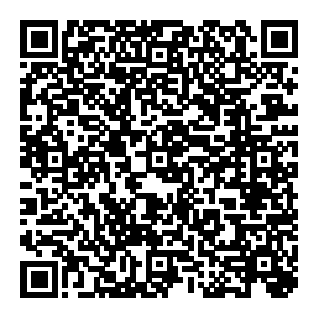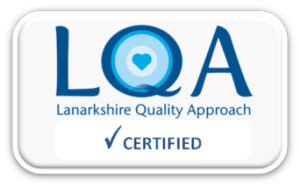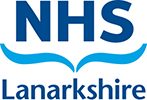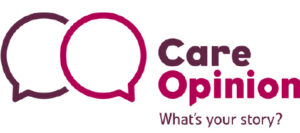Support and guidance following neonatal death
Information for patients
NHS Lanarkshire Neonatal Department
PIL.SUPGUI.21_04223.L
The maternity and neonatal staff of University Hospital Wishaw are so sorry that your baby has died and would like to express our sincere sympathies to you and your family at this sad and difficult time.
We understand that you are not only dealing with the shock and grief of your loss but are now suddenly being faced with decisions you never expected to have to make.
Staff caring for you are aware that grief affects every individual differently and that there is no right or wrong way to grieve. Please take time to think about what is right for you and be assured that your midwife or nurse will be able to answer any questions and support you in your decision making. The bereavement specialist midwife and spiritual care team are also available to offer comfort, support and practical advice at this time.
We hope the information provided will offer some guidance and support in your time of grief.
Useful contacts
Bereavement Specialist Midwife: 01698 361100 ext 5732
Neonatal unit: 01698 366820
Hospital Chaplain: 01698 366779
Why did my baby die?
Following the death of your baby – “Why? Why my baby? Why me?” are the most commonly asked questions which at times can be difficult to answer. Each individual loss is different. The named consultant responsible for your baby’s care will discuss your personal circumstances and answer any questions you may have.
Making memories
The making of memories can be important in remembering your baby. Although it can be difficult initially, the memories created can become comforting at a later stage and can actually help with the grieving process.
When your baby has died, everything you do for and with your baby becomes a very special memory. Time spent with your baby is very precious. Some parents find the thought of seeing, cuddling or bathing their baby frightening, but for most the time spent with their baby becomes an experience which is greatly treasured. Staff will ensure this time is not rushed and will assist with any special requests you have.
Some parents prefer not to see their baby. This is a very individual choice and staff caring for you will respect your wishes.
The loss of a baby can have an effect on everyone including existing children and extended family members. You may decide that you would like to include others in creating memories with your baby or you may wish to do this privately.
Telling other children about the death of their brother or sister can be difficult. Studies have shown that it is helpful to inform your child in simple terms, allowing them time to ask questions and to express their grief. Children may not ask questions initially but you should try to answer them openly and honestly when they do ask. It is helpful to prepare your child for meeting their brother or sister if you wish them to – informing them that their baby will be cold to touch and won’t cry or move. Staff are always at hand to help in any way that they can.
Remembering your baby
This can include:
- Naming your baby/keeping a set of personalised nametags
- Assisting your nurse/midwife in obtaining hand & foot prints
- Assisting in obtaining a lock of hair
- Bathing & dressing your baby
- Spending time with your baby
- Taking various photographs
- Taking your baby home
- Placing an insert in the ‘Book of Remembrance’
An iPad is available within the unit for the taking of photographs and creation of memories. Pictures taken will be sent to you by email via a secure file transfer system. A memory box is also provided to help in the making of memories and storage of keepsakes.
An annual memorial service is held on the first Saturday in March here at University Hospital Wishaw. This service, led by the spiritual care team offers a time of reflection and coming together in sadness and grief. It is a time for remembering our babies who have been lost through miscarriage, stillbirth and neonatal death. Parents, families and friends are always made welcome irrespective of whether your baby has died recently or in years gone by.
Post Mortem Examination
A post mortem is the medical examination of your baby’s body. Every parent has the option of one following the death of their baby. A post mortem cannot be done without your written authorisation unless it has been ordered by the procurator fiscal. The neonatal consultant will discuss this with you.
Although it can be a difficult decision to make and the post mortem cannot always provide a specific reason for the death of your baby, it can be very helpful in:
- Establishing a contributing factor for the cause of death.
- Confirming diagnosis already made during pregnancy or whilst your baby was alive.
- Discovering additional information.
- Helping in the planning of future pregnancies.
- Contributing to research which may prevent baby deaths in the future.
Post mortem examinations are carried out by perinatal or paediatric pathologists at the Queen Elizabeth University Hospital in Glasgow. Your baby will be taken there by the funeral director and will be treated with the utmost respect and dignity at all times. It will be possible for you to see your baby again following the examination and although the final post mortem results are not generally available for 10-12 weeks; your baby’s funeral can be held as soon as the post mortem examination has been completed.
For more information on post mortem, please refer to the NHS Scotland leaflet – Post Mortem Examination of a Child and the Sands booklet – Deciding about a post mortem examination. These will be provided by your nurse/midwife.
Registering the death
By law registration of birth and death must take place before your baby can be buried or cremated. With the exception of deaths reported to the Procurator Fiscal, a ‘Medical Certificate of Cause of Death’ (MCCD/Form 11) will be issued by the doctor attending your baby. This should be taken to any registration office in Scotland within eight days of your baby’s death. A neonatal death can be registered by either parent or a close family member – if you need further clarification, please contact the registrar. However, if you are not married or in a civil partnership and both names have to appear on the birth entry then both parents should normally attend the registration office together. Once registration is complete you will be issued with a ‘Certificate of Registration of Death’ (Form 14) which should then be given to the funeral director.
In May 2015 a national review of Medical Certificates of Cause of Death (Form 11) began. This is a review of the content of the certificates and not a review of the care which was given to your baby. What is does mean though is that at the time of registering your baby’s death the MCCD issued to you may be randomly selected for review (which normally can take between 1-3 days) and you may not be able to complete the registration process immediately. Initial funeral arrangements can still be made. The funeral itself however cannot take place until the review is complete and the ‘Certificate of Registration of Death’ (Form 14) has been provided. An ‘Advance Registration’ can be applied for in exceptional circumstances where the funeral is required to go ahead quickly.
Funeral arrangements
Making funeral arrangements for your baby can be overwhelming at what is a very distressing time. It is important to consider all options and take time in making the choices which are right for you and your baby. Any specific personal, cultural or religious needs can be discussed with your nurse or midwife.
You might like to place your baby in the hands of your own undertaker who will arrange a private cremation or burial. (A private burial can incur costs).
If you wish, University Hospital Wishaw can arrange for your baby to have a cremation or burial and as with the private arrangements, you can be completely involved.
Further information is available in the leaflet ‘Options and Choices for Burial and Cremation Following Miscarriage, Stillbirth or Neonatal Death’ which your Midwife or Nurse will supply you with.
Grief reactions and normal response
It is normal to feel a ‘roller coaster’ of emotions and that ‘things will never be the same again’. This is a natural response to the loss of your baby and it can last for weeks or months. Most people do feel better with time but for some professional help may be required.
If you have experienced the loss of a twin or loss of one or more triplets, it may be assumed that you would be happy at having a baby who has survived. Having a living baby however does not override the grief felt for the baby or babies who have died.
Grief is varied – it is what the experiencing person says it is – there is no right or wrong way to feel and there is no right or wrong way to grieve. It is not uncommon to experience feelings of overwhelming sadness, emptiness, numbness, disbelief, shock, anger, guilt, frustration, irritability, a sense of inadequacy and of being alone. Physical symptoms such as nausea, loss of appetite, poor concentration and disturbed sleep patterns are also common. It can help to talk others who have experienced the loss of their baby too.
Your general health and wellbeing
If your baby has died soon after delivery routine postnatal care will continue and you will require to have a 6 week postnatal check as normal. If you have been expressing breast milk and/or breast feeding, advice will be given on suppression of your lactation and pain relief during this. It is important to take care of yourself both physically and mentally in the days, weeks and months that lie ahead as you adjust and adapt to the loss of what would have been and what was supposed to be. It is also important to seek help and support not only from friends and family but also from health professionals and a counsellor should that ever be required.
The Perinatal Mortality Review Process
We would like to reassure you that we take any death at University Hospital Wishaw very seriously and we review our care in detail when a baby unexpectedly dies. The care you received during your pregnancy and delivery and the care your baby received will be discussed in the coming weeks at a team meeting which will include obstetricians (doctors who care for women in pregnancy), midwives and a neonatologist (a doctor who looks after newborns). If necessary a paediatrician (a doctor who looks after children) and a pathologist (a doctor who performs investigations after someone dies) will also be part of discussions.
It is important for us to examine your care in detail so that we can give you as much information as possible about what might have caused your baby’s death. Understanding what happened also helps us put plans in place to improve care, where we can, for parents and families in the future.
We would like to include your views about your care as part of our hospital team meeting and the review of your baby’s death. We would like, therefore, to give you the opportunity to raise any issues you’d like to now. You do not have to do this; it is entirely your decision. But if you would like there are several ways to let us know about your experience or any questions you may have, a letter will be sent to you from the bereavement specialist midwife in the next few weeks with details of how you can submit any questions or comments you may have.
Support and follow up
Following the death of your baby, your GP, community midwife (if applicable) and health visitor shall be informed accordingly to ensure continuing support thereafter. A 6-8 week appointment shall be arranged with your baby’s named consultant neonatologist. This will give the opportunity to discuss your baby, their care and condition, any results that are available and potential impacts for the future. It will also give the opportunity for you to raise any questions you may have. You can of course contact the neonatal unit and the bereavement specialist midwife at any time.
These are some of the services that might be able to help you now or in the future:
The Bereavement Specialist Midwife will provide ongoing support throughout the first year following the loss of your baby and can help answer questions that you have about the treatment and care you have experienced.
Tel No: 01698 361100 extension 5732.
There is an answering service if she is unable to take your call.
The Spiritual Care and Wellbeing Team is a 24 hour on-call service and can be contacted via University Hospital Wishaw switchboard on
Tel No: 01698 361100.
Maternity Triage
If you have any concerns about your physical wellbeing following discharge from the hospital you can contact
Tel No: 01698 366210
Further advice and support is offered by:
- Sands:
Tel: 0808 164 3332
Email: lanarkshire@sands.org.uk
- Simba:
Email: glasgowsimbacharity@gmail.com
- Miscarriage Association:
Tel. 01924 200799
Web: www.miscarriageassociation.org.uk
- Twins & Multiple Birth Association:
Web: www.tamba.org.uk/bereavement
- Muslim Bereavement Support:
Tel: 020 3468 7333
Email: info@mbss.org.uk
- Tommys:
Tel: 0800 0147 800
Web: www.tommys.org
- Child Bereavement UK:
Tel. 0800 028 8840
Email: glasgowsupport@childbereavementuk.org
- The Lullaby Trust:
Tel: 0808 802 6868
Email: support@lullabytrust.org.uk
- Cruse Bereavement Care Scotland:
Web: http://www.crusescotland.org.uk
Tel: 0845 600 222
- Bliss:
Web: www.bliss.org.uk
Tel: 0500 618 140

Pub. date: March 2022
Review date: March 2024
Issue No: 01
Reference: PIL.SUPGUI.21_04223.L
22_00504
If you need this information in another language or format, please e-mail:




